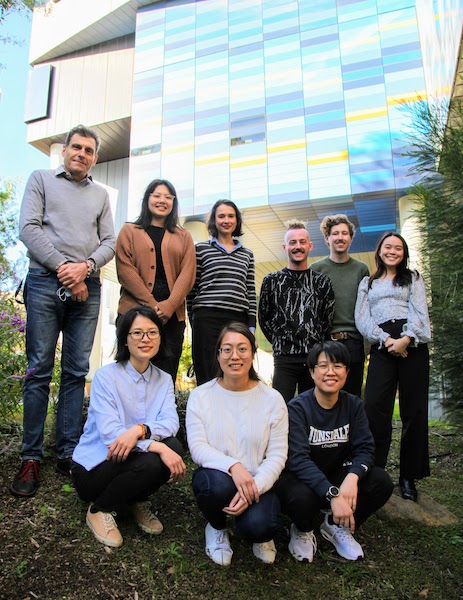Gastrointestinal Infection and Inflammation

The Gastrointestinal Infection and Inflammation Research group
Overview
Mammalian hosts defend themselves from foreign insults through the actions of the innate and adaptive arms of the immune system. The innate immune system has been conserved throughout evolution and is now recognised to play key roles in host responses to infection. Research in the Gastrointestinal Infection and Inflammation laboratory is broadly directed at understanding how the innate immune system responds to disease-causing micro-organisms and how these responses lead to disease, most notably in the digestive tract.
There are three major research themes in the laboratory.
The first of these concerns the stomach bacterium, Helicobacter pylori, which is responsible for one of the most common infections in humans, affecting approximately half of the world’s population. H. pylori infection is a major cause of several diseases of the digestive tract in humans, including stomach cancer and peptic ulcer disease. A hallmark of H. pylori infection is the chronic inflammation (gastritis) that precedes these severe diseases. Our research is focused on understanding how and why H. pylori induces gastritis. The ultimate aim of these studies is to better understand the pathophysiology of the inflammatory processes that precede stomach cancer, a major cause of cancer-related mortality worldwide.
A second major theme in the Gastrointestinal Infection and Inflammation laboratory is the study of a family of innate immune molecules within the cytoplasm of host cells. These molecules, known as the NOD-like receptors (NLRs), act as intracellular sensors of pathogens and trigger a range of inflammatory and immune responses to infection. Dysfunctional responses by NLR family members have been associated with a range of conditions, including inflammatory bowel disease, arthritis, diabetes and various cancers. We are currently investigating the roles of NLR proteins in the development of two forms of stomach cancer resulting from chronic H. pylori infection, one affecting epithelial cells (adenocarcinoma) and the other, characterised by excessive immune cell recruitment to the stomach (mucosa-associated lymphoid tissue (MALT) lymphoma).
Lastly, the laboratory is studying the biology and immunology of membrane vesicles that are naturally released by bacteria. We have shown that these bacterial vesicles are highly efficient at entering host cells and triggering NLR signalling, thereby resulting in inflammation and cellular stress responses. Our research is directed at understanding the roles of bacterial membrane vesicles in infection.
Diseases we research
Areas of focus
- Characterisation of the role of NLRs in cellular changes associated with stomach cancer.
- Regulation and biological functions of a new NLR family member that protects against MALT lymphoma.
- Identification of novel molecular and cellular pathways involved in the development of MALT lymphoma.
- Role of long non-coding RNAs in H. pylori infection.
- Transport by bacterial membrane vesicles of immunomodulatory molecules and genetic material into host cells and their effects on cellular functions.
Research Group Head | Professor Richard Ferrero
Late diagnosis is one of the biggest issues in stomach cancer. The major focus of my research is Helicobacter pylori, responsible for one of the most common infections in humans and the causative agent of peptic ulcer disease and stomach cancer, with the goal to save lives thorough better detection and treatments.

News from the lab
Student opportunities

Publication highlights








